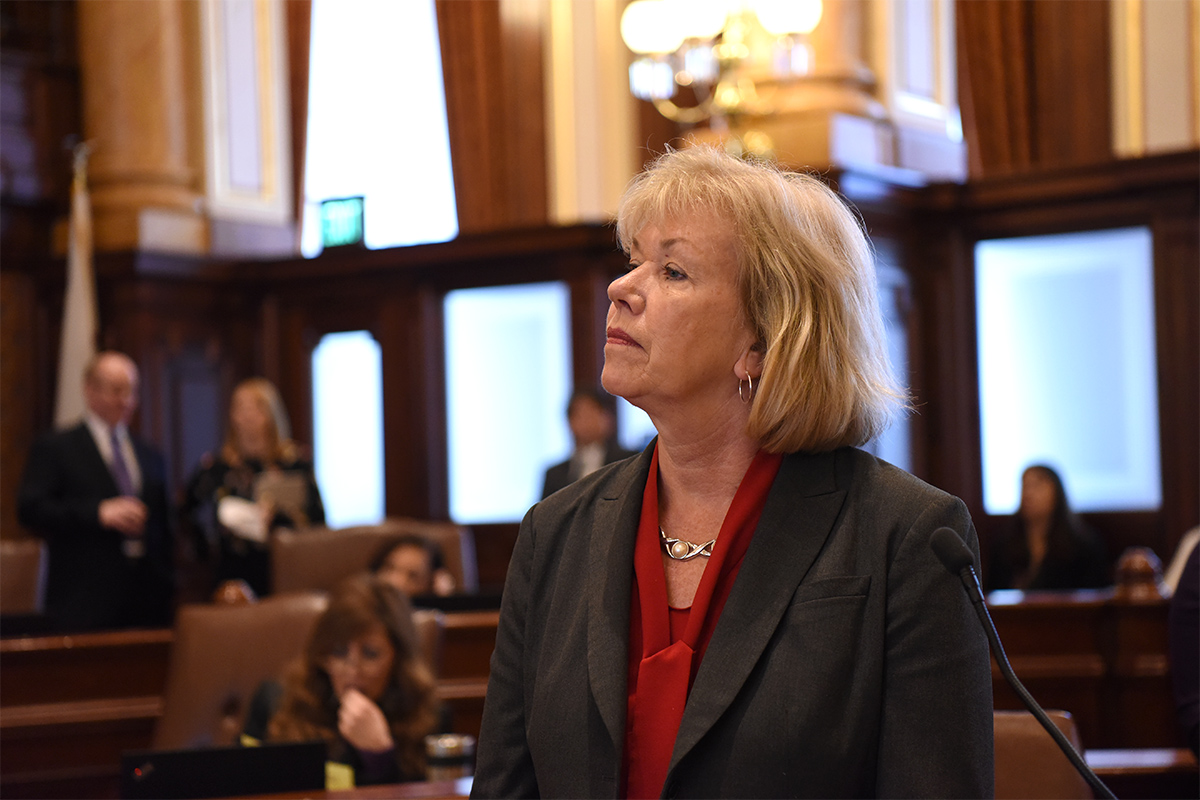HIGHWOOD — As other members of the General Assembly raise concerns about the FOID card backlog and outline a Second Amendment agenda, State Senator Julie Morrison (D-Lake Forest) is encouraging her colleagues to support the final push for her comprehensive firearms measure.

“Fix the FOID is not anti-gun — it simply ensures guns are not possessed by people who should not legally have them,” Morrison said. “Fingerprinting everyone who applies for a card will help raise red flags if that person has a violent criminal history that should keep them from having a firearm.”
Senate Bill 1966 would make key changes to Illinois’ current FOID system, requiring background checks for all gun sales, requiring applicants to submit their fingerprints, requiring FOID renewals every five years instead of 10, and creating a task force within the Illinois State Police to prioritize FOID card revocations when there is clear and present danger.
It would also increase the FOID application and renewal fee from $10 to $50. However, that funding would also go to the state police to help them do their job of processing and administering FOID cards, which would help with backlogged requests.
Prior to the onset of the COVID-19 pandemic, Morrison was confident it would soon be on its way to the governor’s office, as it just needed final approval from the Senate.
The measure was brought to life in response to the February 2019 shooting at the Henry Pratt building in Aurora. The shooter had received a FOID card in January 2014, after lying about a conviction that would have caused him to fail the background check.
Illinois State Police Director Brenden Kelly said in February that the fingerprinting aspect of the measure could have prevented the tragedy.
“I firmly believe we have developed the framework that would keep guns out of the hands of people we know would present a risk to themselves or others,” Morrison said. “I hope to see this measure cross the finish line next month, so we can finally close to the loopholes in gun laws.”
Morrison has requested the measure be brought up during the Senate’s anticipated January lame-duck session.





